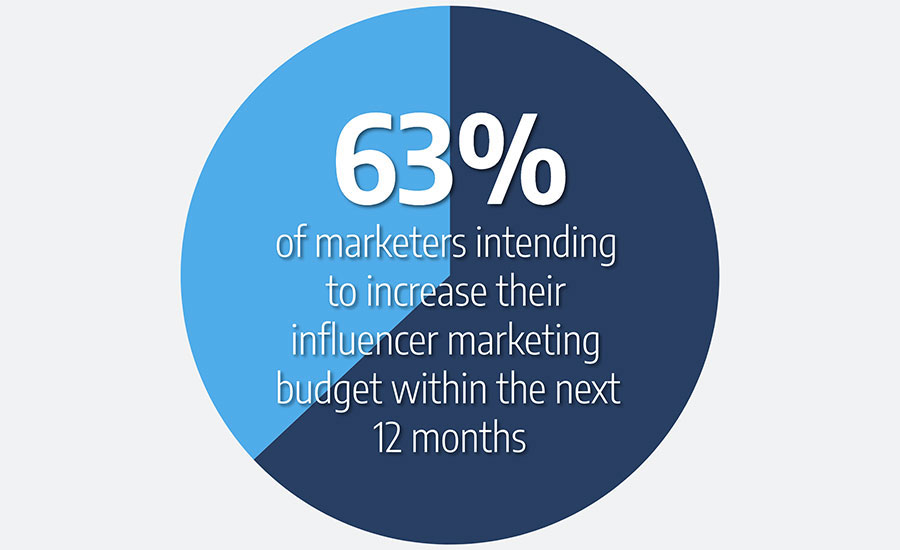As we’ve entered a brand-new decade of influencer marketing, things are changing. And rather swiftly at that.
With 63% of marketers intending to increase their influencer marketing budget within the next 12 months, there is more evidence to showcase just how impactful influencer campaigns really are. But because of this, brands are beginning to question exactly where they should be spending their money and how they’re going to measure its success.
The question on everybody’s lips is whether to opt for return on investment (ROI) or brand awareness?
Amelia Neate, senior manager at Influencer Matchmaker, says, “It’s safe to say that influencer marketing isn’t going anywhere, and now that it is so readily available to most brands and businesses, there are a number of ways to measure the success and the outcome of each campaign. It’s no longer as simple as how many likes a photo gets. It’s much more strategic than that now. And although different, both ROI and brand awareness are equal in terms of their benefits to a business.”
And although influencer marketing is fast becoming one of the most popular marketing strategies around the world, it can be difficult to measure solid return on investment.

The Challenges Brands Face
One of the challenges that many brands face is clarifying their objective. It’s tricky to narrow it down to just one as, understandably, brands have a number of things that they’d like to achieve from an influencer marketing campaign.
“This is where brands tend to trip up, by focusing on more than one primary objective. It’s difficult to track results and success if the goal isn’t crystal clear to begin with,” Neate says.
A brand’s budget, along with sourcing the right influencer, could also prove to be a challenge, which is often when they would enlist the help of an influencer marketing agency.
Neate explains, “Brands come to us with a budget and we find them an influencer that will suit both their budget and their campaign.”
Choosing the Right Tactic
Whether it’s creating awareness of your brand, consideration, conversion or production, your goal and objective should align with both your campaign and influencer marketing strategy, matching your brand KPIs.
With influencer marketing, return on investment isn’t solely based on revenue — at least not anymore.
If brands choose to focus on awareness, then they should know that this is a rather difficult goal to measure. However, that isn’t to say it isn’t worth it. In fact, creating awareness for a brand could be the most valuable goal of all.
Word of mouth is still the most trusted source of marketing, so putting your brand out there, in a way that is easily recognizable, is a surefire way of achieving just that.
Focusing on other metrics such as conversions, sales and actions are much easier to measure, demonstrating obvious levels of success — or lack of.
“Thanks to website analytics and social media insight tools, it is now easier than ever to keep track of online statistics, making it quick and effective to measure ROI in the case of metrics,” Neate explains.

Influencer-Focused Brands
Many brands have focused predominantly on influencer marketing, including HEAT. A brand created to fill a gap in the luxury fashion market, HEAT teamed up with packaging provider Delta Global to create innovative mystery boxes for consumers. By collaborating with well-known influencers, HEAT has increased and encouraged sales of its new product and service.
Other well-known brands, such as Daniel Wellington and Gymshark, became market leaders in their chosen industries thanks to focusing on their influencer marketing strategies.
Neate says, “Although they may not have seen an increase in sales straight away, the brands were placed at the forefront of their target audiences, and a huge buzz was created around their products.
Influencer Matchmaker recently worked with Disney+ on a campaign to celebrate the launch of Frozen 2.
Neate and her team of experts partnered the brand with well-known parenting influencers, whose children were already fans of the first film, including Jacqueline Jossa. In doing so, the influencer marketing agency placed the campaign at the very forefront of its target audience.
ROI or Awareness?
There really is no simple answer to this question, no matter how often it is asked.
Creating awareness of a brand is a lengthy and ongoing process, and often, the results of this are working quietly in the background until further down the line. But making potential consumers aware of your brand is an invaluable process, although more difficult to measure and determine immediate success — or failure.
Neate defines both ROI and awareness as an equal footing with both tactics proving beneficial to brands.
“ROI based on conversions and actions is a much more concrete process,” she explains. “But, that doesn’t necessarily mean that it is the better route to follow. It all comes down to a brands personal objective and what they are aiming to achieve.”

